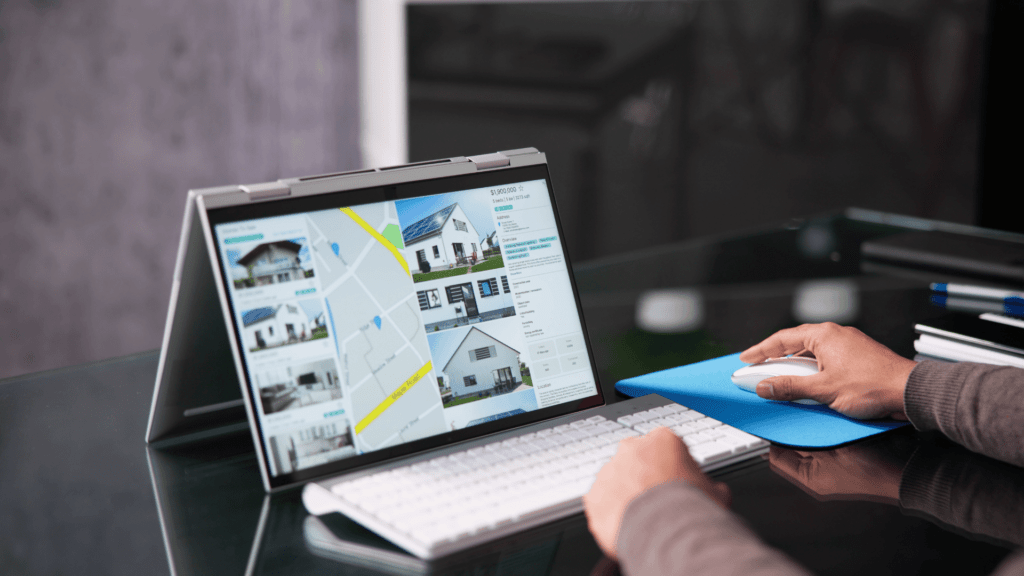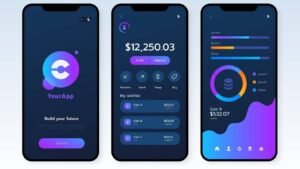The real estate industry is undergoing a profound and exciting shift. Driven by rapid advances in technology, the way people buy, sell, rent, and invest in property is being completely reimagined. Digital transformation in real estate is no longer just a trendy phrase—it has become a full-fledged movement that’s redefining industry norms, making transactions faster, more secure, and deeply customer-focused.
From immersive virtual tours to AI-powered tools, here’s how digital innovation is revolutionizing real estate across the USA:
1. Virtual Reality Property Tours: A New Way to Experience Homes
Gone are the days when homebuyers had to schedule multiple in-person viewings and physically travel from one location to another. Virtual reality (VR) and 3D imaging now allow prospective buyers and renters to take immersive, interactive tours of properties from anywhere in the world—on their laptops, tablets, or smartphones.
Whether it’s a first-time homebuyer exploring different neighborhoods or an international investor considering multiple properties, virtual tours save time, increase engagement, and make the selection process far more efficient. In the post-pandemic world, where convenience and safety are key, this digital solution has become a cornerstone of the real estate experience.
2. AI-Powered Search and Personalized Listings
Artificial intelligence is streamlining the way users interact with real estate platforms. Thanks to machine learning algorithms, online portals can now analyze user behavior, preferences, and past searches to suggest properties that align more closely with individual needs.
This level of personalization ensures buyers and renters are no longer sifting through irrelevant listings—instead, they’re met with tailored results that match their budget, lifestyle, and desired location. AI also helps agents automate responses, manage client databases, and generate intelligent recommendations, all contributing to a more dynamic, data-driven market.
3. Blockchain and Smart Contracts: Securing the Transaction Process
One of the most disruptive technologies in real estate today is blockchain. By enabling smart contracts, blockchain removes the need for middlemen in many stages of a property transaction. These self-executing contracts automatically enforce the terms of the agreement, ensuring that all parties meet their obligations.
The benefits? Reduced paperwork, enhanced transparency, minimized fraud risks, and a significant cut in transaction times. Blockchain not only boosts trust between buyers, sellers, and agents but also ensures that critical data is secure, traceable, and easily verifiable.
4. Predictive Analytics for Smarter Investments
With the power of predictive analytics and big data, real estate professionals can now anticipate market shifts, identify emerging trends, and make more informed decisions. This technology leverages historical data, neighborhood metrics, consumer behavior, and economic indicators to forecast pricing, rental yields, and investment hotspots.
For both seasoned investors and newcomers, this means less guesswork and more precision, helping maximize returns and reduce risks. Predictive tools are also invaluable for developers and brokers looking to identify high-demand areas or determine optimal property pricing.
5. Mobile-First Experiences: Real Estate at Your Fingertips
In today’s fast-paced digital world, mobile devices are often the first (and only) point of interaction for users. Real estate platforms are meeting this demand with mobile-first applications that enable users to:
Browse real-time listings
Schedule virtual or in-person showings
Apply for financing
Communicate with agents
Sign and share documents electronically
This end-to-end mobile functionality allows for a smoother, faster, and more flexible real estate journey, whether you’re a buyer, seller, or agent on the move.
Conclusion: The Future is Digital—and It’s Already Here
With the integration of intelligent platforms, immersive technologies, and automated processes, digital transformation in real estate is setting bold new standards for customer experience, transparency, and operational efficiency.
The shift isn’t just about adopting new tools—it’s about reimagining the entire real estate ecosystem to meet the evolving needs of the modern buyer and seller. From virtual viewings to blockchain-secured transactions, the real estate industry in the USA is embracing a digital-first future—and the results are smarter, faster, and more user-centric than ever before.













